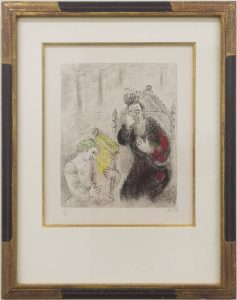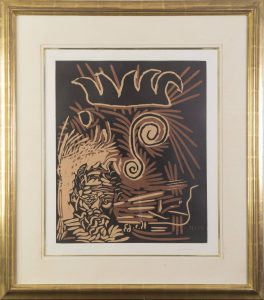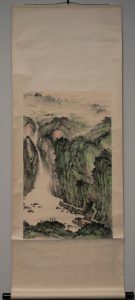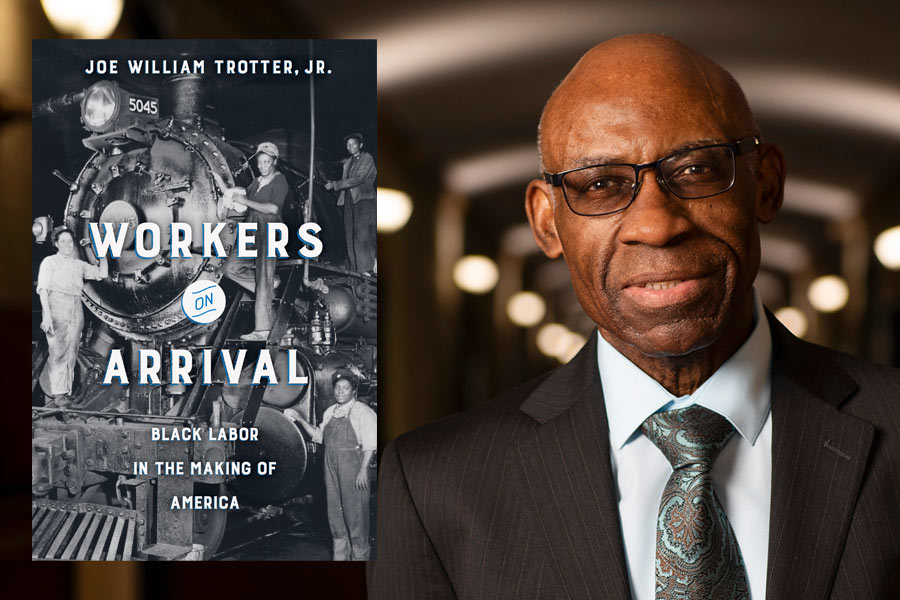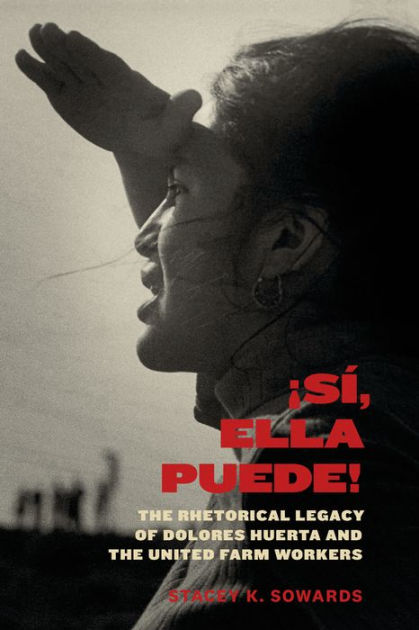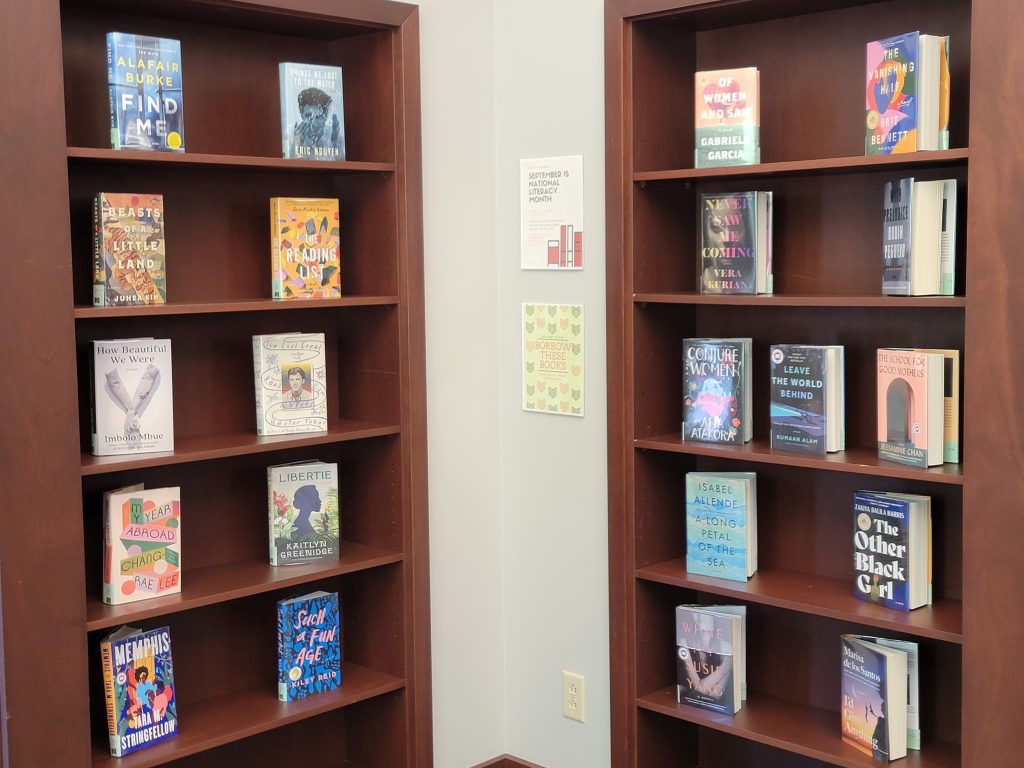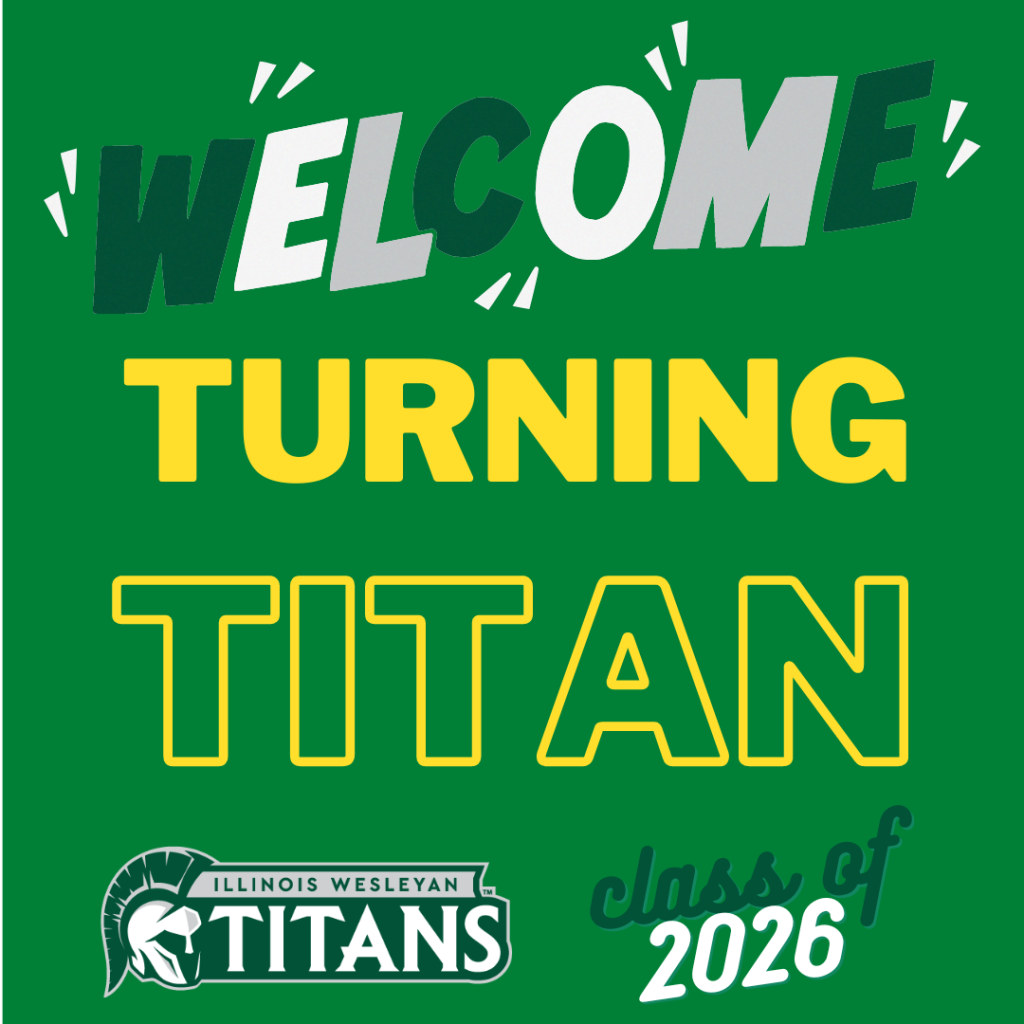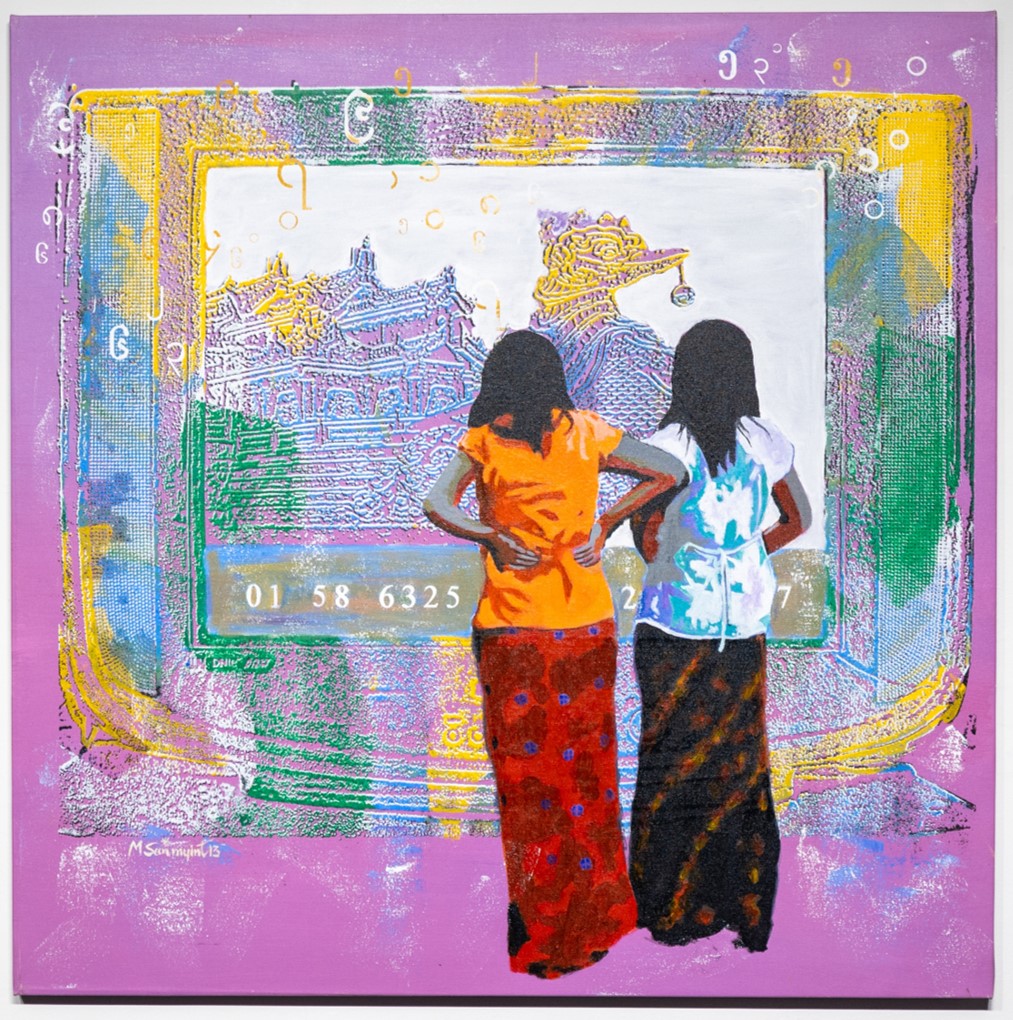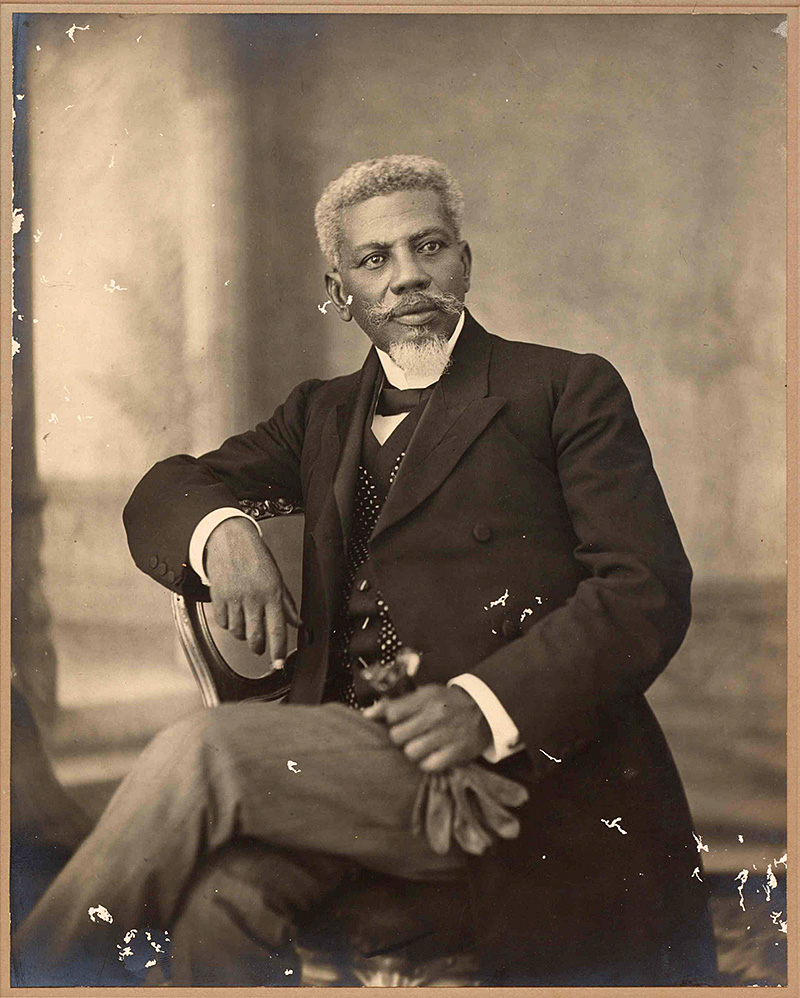
We are pleased to announce an expansion of artwork on the entry level of the library. We received many comments about how bare the walls looked after last fall’s exhibition of works by Myanmar artists. Through another collaboration with School of Art faculty, 15 of the previously-stored works in the Campus Art Collection are now on public display. This is a teaching collection containing over 1,300 items.
The Thorpe Center on the library’s 3rd floor also has numerous selections from the larger collection, and all works contained within The Ames Library are available for public viewing.
Many of the new additions to the entry level are by Arrah Lee Gaul, a prolific artist of landscapes and portraits, who died in 1980 at the age of 92. Miss Gaul chose Illinois Wesleyan as a beneficiary in her estate because of her devotion to her father, a Methodist minister who served Philadelphia churches from 1883 until his retirement in 1931. The Rev. Christian Lee Gaul, was proud of the doctor of philosophy degree he was granted by IWU in 1899 after fulfilling requirements in the non-resident degree program.
To learn more about the Gauls and this donation, listen to this 1981 recording by Flora (Harris) Armstrong, Trustee and member of the Class of 1943. The Spring 1982 IWU Bulletin also covered the story.

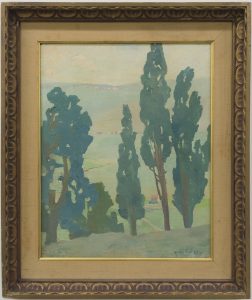
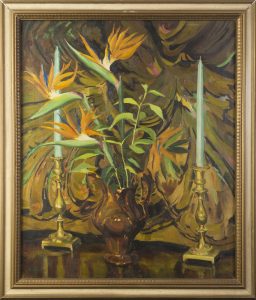
(click any image to enlarge)
Other new additions from the Campus Art Collection are prints by Marc Chagall and Pablo Picasso. A recent addition to the works by Chinese artists is also on display. A new scroll was donated last year by Roger Sheldon, Class of 1964. Two scrolls are on display between the Ford Instruction Lab and the Social Justice & Diversity Room at all times but are rotated every six months to minimize light damage.
